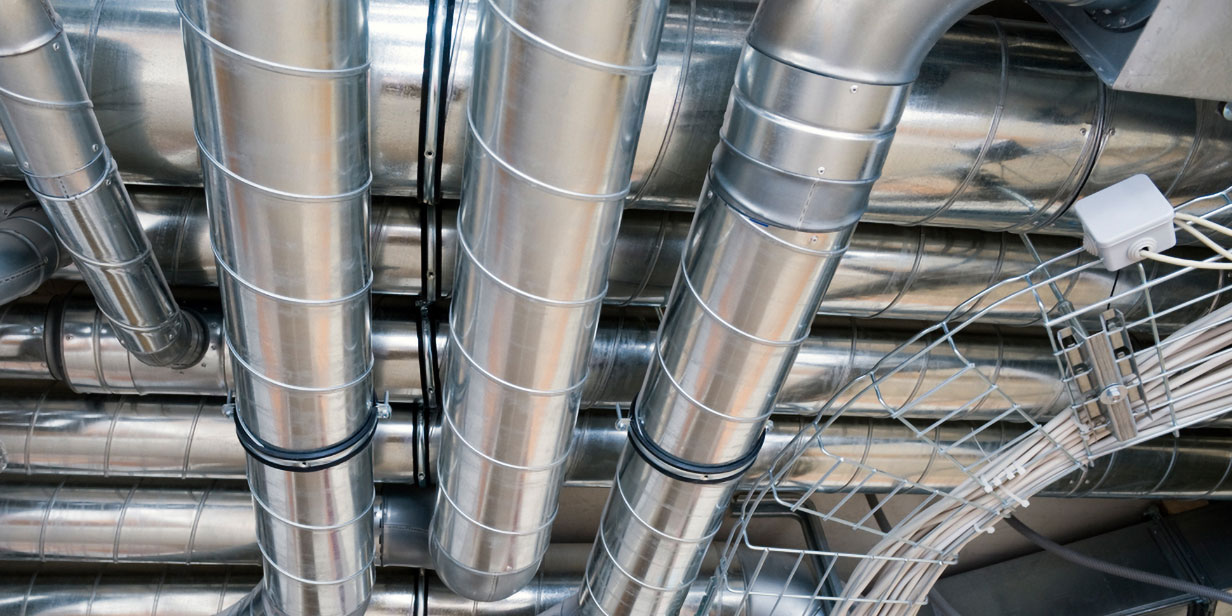Phillip Smith
Vice President, Manager, Building Materials
Phone Number:
+1 (1)781 255 4783

One of the unsung heroes of the energy conservation and cost-saving effort is the insulation used to protect and improve the efficiency of heating, ventilation and air conditioning (HVAC) pipes and ductwork, and piping used in industrial processes, tanks and boilers.
Mechanical insulation can have many purposes and functions, including condensation control, energy conservation, freeze protection, protection of personnel from extreme surface temperatures, process control and noise reduction. Mechanical insulation is available in many forms, including preformed cylindrical half-sections of rigid insulation or preformed flexible sections to insulate small pipes and tubing. Larger pipes can be insulated with flexible material or preformed sections that can be wrapped or assembled around the pipe.
The exterior of ductwork is typically insulated with sheets of rigid or flexible insulation. Pre-insulated duct is an all-in-one type of product that consists of a foil-backed insulation board that can be scored and folded to create insulated ducts in a single step.
Mechanical insulation is available in a wide range of materials, including:
Insulated pipes are typically installed in tunnel-like structures known as a chase. While a chase provides a convenient means to run pipe horizontally and vertically through a building, it can also provide an ideal pathway for fire to travel and propagate.
The fire and smoke damage risks posed by insulated pipes and ducts are com- pounded for industries such as semiconductor, pharmaceutical and food processing. In many cases, supplemental automatic sprinklers are required to adequately protect areas with abundant insulated pipes and ducts.
The Approval Guide lists numerous FM Approved pipe insulations that have been tested according to Approval Standard 4924, Approval Standard for Pipe Insulation. Also listed in this category are sheet insulations that are used for insulating ducts or large pipes.
The primary fire test employed within Approval Standard 4924 is the full-scale pipe chase test. In this test, three 2-inch (51 mm) NPS steel pipes covered with the test insulation in the desired thickness are installed in a mock-up of a pipe chase. In this test, if fire does not spread horizontally 24 feet (7.3 m) in 10 minutes, the material is considered acceptable.
A room-scale fire test is required by Approval Standard 4924 for the evaluation of flat insulation. The Uniform Building Code (UBC) Standard 26-3, Room Fire Test Standard for Interior of Foam Plastic Systems, is the default room fire test required by Approval Standard 4924. Other room fire tests may be performed by FM Approvals in lieu of UBC 26-3, depending on customer needs, including ISO 9705:1993, Full-scale Room Test for Surface Products.
Pre-insulated duct material is evaluated in accordance with Approval Standard 4922, Approval Standard for Fume Exhaust Ducts of Fume and Smoke Exhaust Ducts. This evaluation includes the horizontal duct fire test. To date, pre-insulated duct has not fared well in this fire test since there is no sheet metal barrier to protect the insulation from fire.
Manufacturers of tubular pipe and/or flat sheet insulation also have the option to have their products tested in accordance with FM Approvals Test Protocol 4910, Cleanroom Materials Flammability Test Protocol. Products that meet this additional test standard limit fire spread and smoke damage, and may be used within cleanroom environments such as the semiconductor, food, and pharmaceutical industries without automatic sprinkler protection.
Pipe and duct insulation that meets the criteria of Approval Standard 4924, and the associated tests described above, represent a low fire hazard and do not require automatic sprinkler protection. In addition, insulations that meet FM Approvals Test Protocol 4910 may also be used in cleanroom environments without sprinkler protection.
Backed more than 120 years of experience, scientific research, and a growing global organization designed to meet the needs of manufacturers and end users worldwide, FM Approval testing is considered among the most rigorous in the world. It signifies a manufacturer’s confidence in its product and is a quality indicator that may help differentiate a product from the competition.
FM Approvals provides its customers insights that can strengthen product design and by providing ongoing support once a product has achieved FM Approval. FM Approved products are not only listed in the online Approval Guide but, just as importantly, FM Approved products are specified and accepted by building owners, designers and code authorities, and regularly recommended to FM insureds in nearly 200 countries by 1,800 FM field engineers.
Conformance to the following standards verifies that pipe and duct insulation meet the stated safety and performance criteria, providing assurance in its ability to mitigate fire and smoke damage.
FM 4910
Cleanroom Materials
FM 4922
Fume Exhaust Ducts or Fume and Smoke Exhaust Ducts
FM 4924
Pipe and Duct Insulation
Begin the approval application process